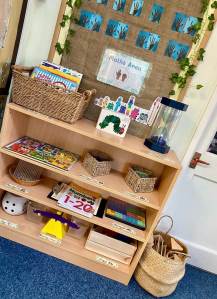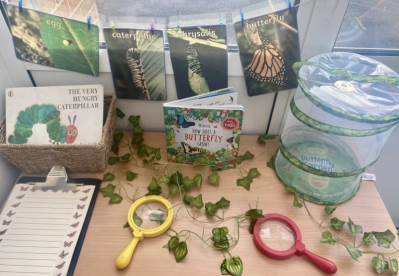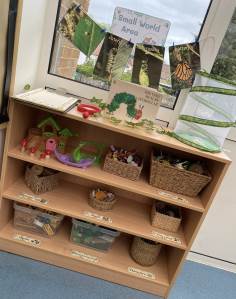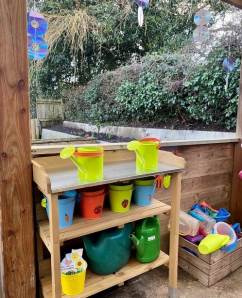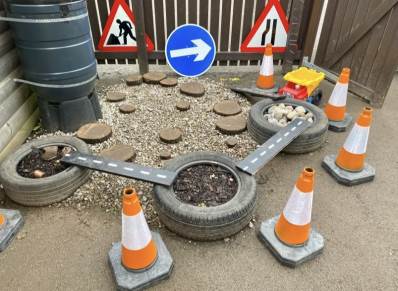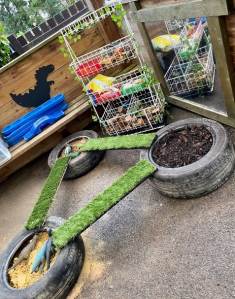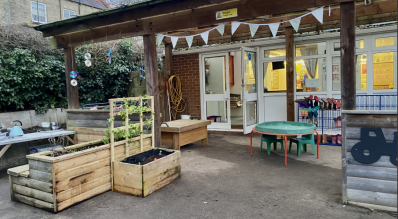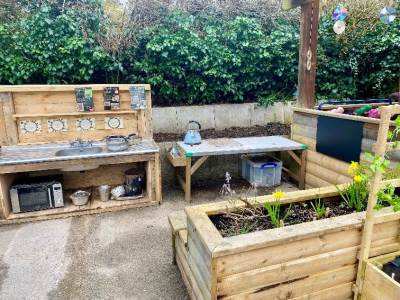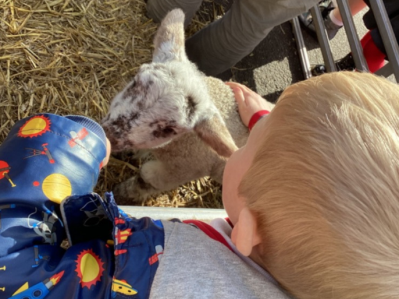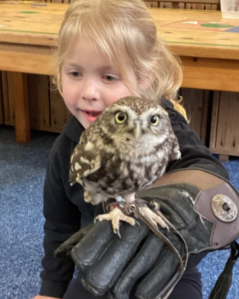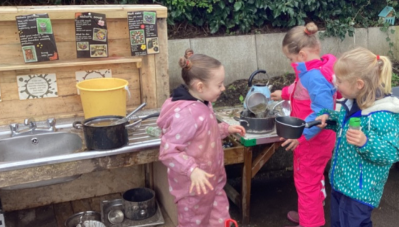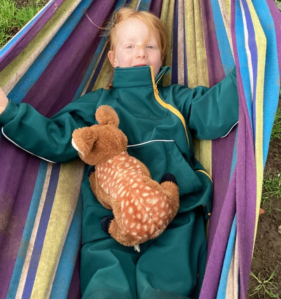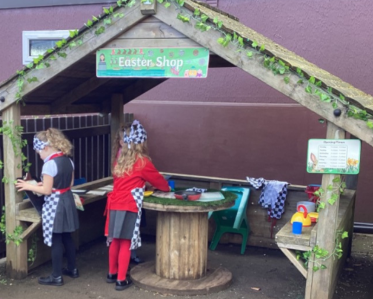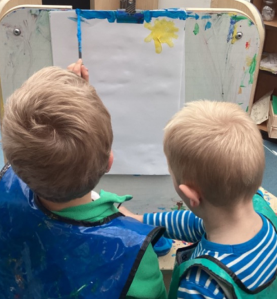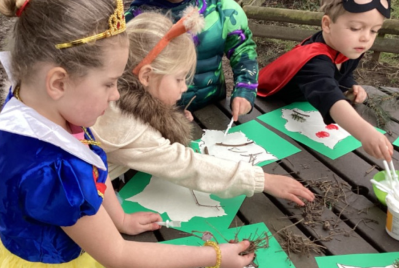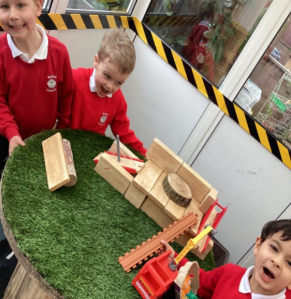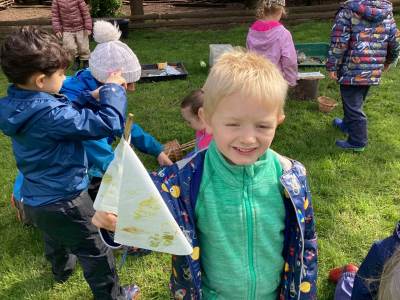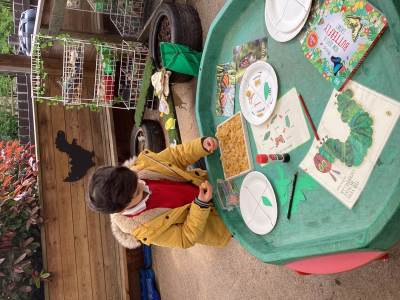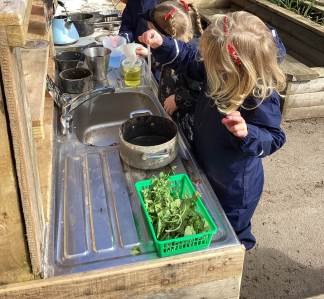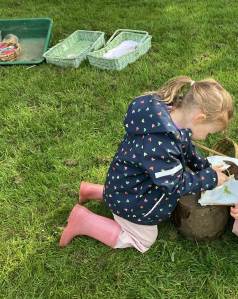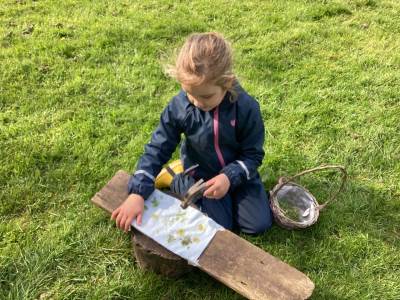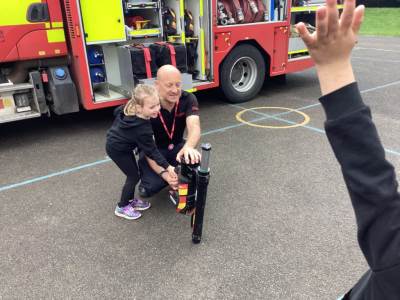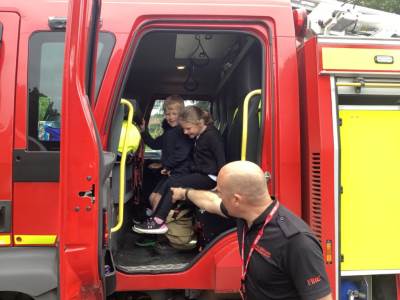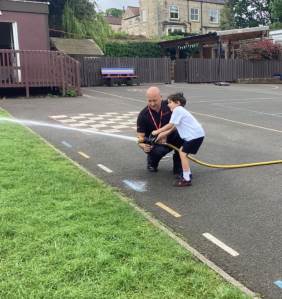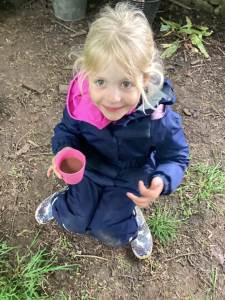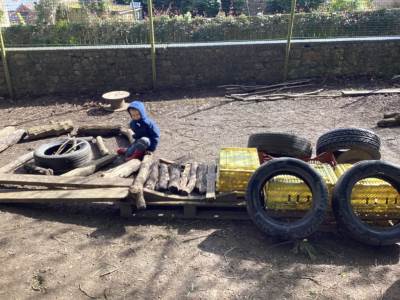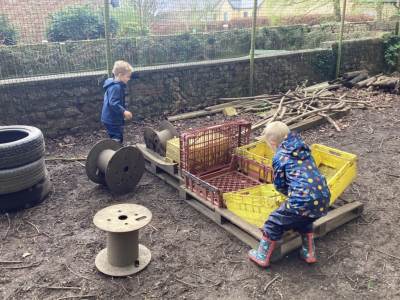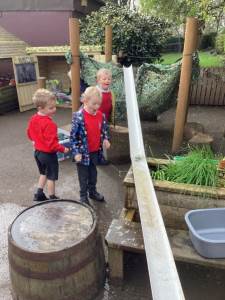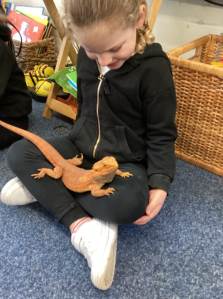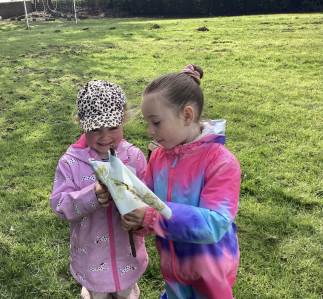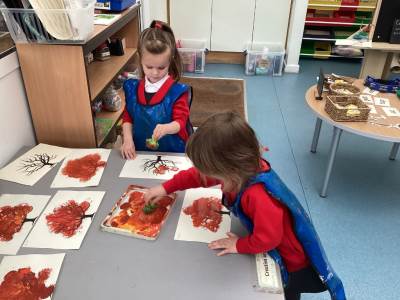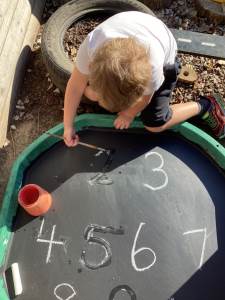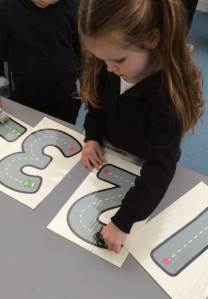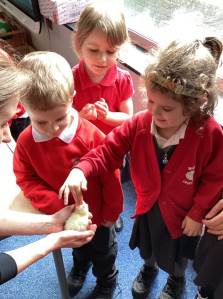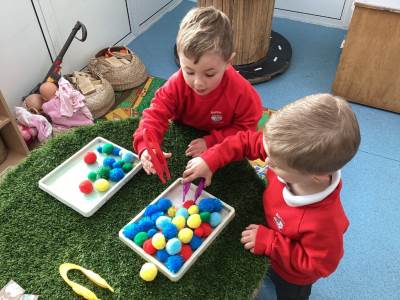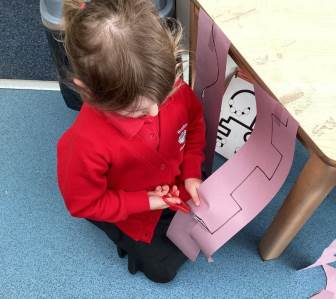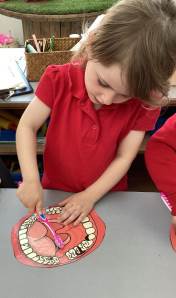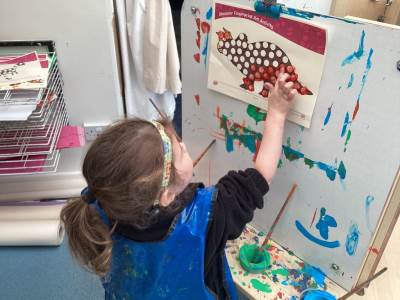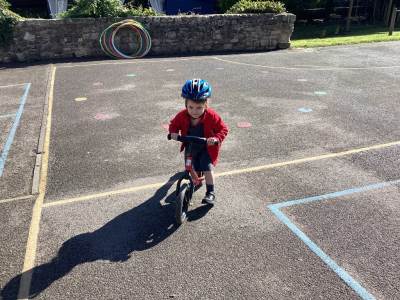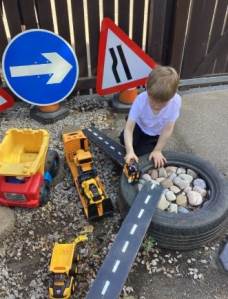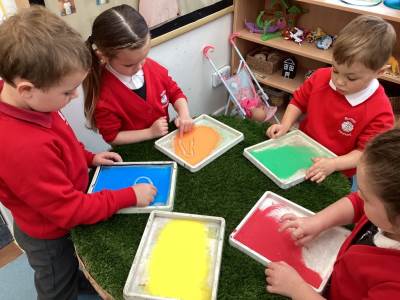Early Years Foundation Stage
EYFS Intent, Implementation and Impact
Intent
At Burton Leonard Church of England Primary School, our intent in EYFS is:
- To create a happy, safe and nurturing environment where children develop as learners
- To provide a stimulating indoor and outdoor environment where children safely explore risks and challenge their own learning
- To provide an exciting and inspiring curriculum, which responds to the individual interests and needs of the children
- To create a safe and nurturing environment, where children develop resilience, friendships and positive relationships
- To ensure learning is accessible for all and children’s individual progress is valued
- To work closely and collaboratively with parents
- To effectively prepare the children for the next steps in their school life
Areas of Learning:
The seven areas of learning and development shape our provision. The three prime areas are particularly significant for igniting children’s curiosity and enthusiasm for learning, and for building their capacity to learn, form relationships and flourish.
- Communication and language development: We give children opportunities to experience a rich language environment; to develop their confidence and skills in expressing themselves; and to speak and listen in a range of situations demonstrating a good understanding.
- Physical development: We provide opportunities for children to be active and to develop their co-ordination, control, and movement. We help children to understand the importance of physical activity and to make healthy choices in relation to food.
- Personal, social and emotional development: We help children to develop a positive sense of themselves, and others; to form positive relationships and develop respect for others; to develop social skills and learn how to manage their feelings; to understand appropriate behaviour in groups; and to have confidence in their own abilities.
Our provision also supports children in four specific areas, through which the three prime areas are strengthened and applied.
The specific areas are:
- Literacy: We encourage children to link sounds and letters and to begin to read and write. Children are given access to a wide range of reading materials (books, poems, and other written materials) to ignite their interest.
- Mathematics: We provide children with opportunities to develop and improve their skills in counting, understanding and using numbers, calculating simple addition and subtraction problems; and to describe shapes, spaces, and measure.
- Understanding the world: We guide children to make sense of their physical world and their community through opportunities to explore, observe and find out about people, places, technology and the environment.
- Expressive arts and design: We enable children to explore and play with a wide range of media and materials, as well as providing opportunities and encouragement for sharing their thoughts, imagination, ideas and feelings through a variety of activities in art, music, movement, dance, role-play, and design and technology.
Where children are not on track for achieving the 17 Early Learning Goals, we target children’s needs and provide the necessary interventions whether this is through direct teaching, linked provision, continuous or enhanced provision.
Implementation
Children at Burton Leonard Church of England Primary School are taught the skills required in the Early Years Foundation Stage through weekly or half-termly topics which are coherently planned to build upon their current understanding, skills and knowledge. Children are encouraged to take risks, to wonder and to ask questions about what they are learning. This information is then used to plan subsequent lessons. Parents are regularly informed about their child’s progress and learning through Tapestry.
Each area of learning is implemented through planned, purposeful play and through a mix of adult-led, adult-directed and child-initiated play. Play is an essential part of children’s development and we believe it builds their confidence as they learn to explore, think about problems, and relate to others. We strongly believe that children learn by leading their own play, and by taking part in play which is guided by adults.
There are set routines that we follow each day to ensure consistency. There are designated times when the children come together to be taught and we focus on phonics, literacy, math's and topic work. As the year progresses, we shift towards more activities led by adults and direct teaching, to prepare the children for more formal learning in Year 1.
Characteristics of Effective Learning:
Our environment offers high quality provision consisting of small world, role play, construction, outdoor, malleable materials – playdough, water, sand, painting, mud kitchen, den building and outdoor resources.
The three characteristics of effective teaching and learning area:
- Playing and exploring
Children investigate and experience things and are encouraged to ‘have a go’. Children are provided with opportunities to explore in every area of our provision. Some resources that encourage creativity that are ambiguous are: planks, wooden bricks and den building materials – pegs, sheets, blankets etc.
- Active learning
We encourage children to develop resilience and to keep trying when they are faced with any difficulties, and enjoy achievements. We encourage children to be active learners by creating an environment led by their interests. Children’s interests are continuously planned for by staff.
- Creating and thinking critically
We provide lots of opportunities for children to problem solve and work things out supported by an adult who scaffolds and models thinking. We support and encourage children to investigate and problem solve independently. We enhance the provision weekly by selecting resources and activities to meet the children’s developmental needs and these are planned according to children’s interests. Our weekly provision enhancement plans outline the enhancements for each specific area.
Adults observe children’s learning in provision and also teach, support and scaffold children’s learning through their play.
EYFS Environment
How we use assessment
Assessment is key in understanding children’s needs, the progress they have made and what support needs to be put in place. Our whole environment is shaped by assessment.
- Ongoing assessment (formative assessment) is an integral part of the learning and development process. We observe the children daily to understand their interests, learning styles and their level of achievement. These observations are then used to inform future planning.
- Tapestry – All members of staff in EYFS have access to Tapestry. Staff capture ‘wow moments’ which are uploaded and shared with parents. Tapestry is used to record children's attainment and progress.
- Summative assessment – Baseline assessments (starting points).
EYFS Profile – completed in the summer term of the academic year in which the child turns 5. This assessment is used to examine children’s development and progress across the 7 areas of learning (ELG’s).
Tapestry
Throughout the Reception year, we use an online Learning Journey called ‘Tapestry’. This is an online recording system which enables staff to take photographs of the children during their day and record observations as they engage in activities both in the classroom and in the outdoor environment, across the 7 Areas of Learning. These are then shared with parents, and parents are also invited to make contributions. This enables us to work closely with parents/carers to support each and every child to reach their full potential.
Impact
We strive for the vast majority of our children achieving the 17 Early Learning Goals in the summer term. These outline the knowledge, skills and understanding that children should have gained by the end of the Reception year in the seven areas of learning and development. All children will have achieved their personal best by the end of the Reception year.
Our children will be actively engaged in their learning and will have experienced a curriculum that provides exciting and enriching learning experiences and opportunities that meets their interests and needs. We aim to help children to make sense of the world around them, through our school values and an understanding of theirs and others rights.
Children will be successful learners and will be prepared for the next stage of their education as they transition from Early Years Foundation Stage into Key Stage One.
EYFS
Safeguarding and Welfare Requirements
At Burton Leonard Church of England Primary School, we know that children learn best when they are healthy, safe and secure and their individual needs are met. This is paramount to our daily practice. Please refer to our Safeguarding Policy for further details.
Meet the team
Miss Newell – EYFS teacher/ EYFS lead
Miss Newton, Mrs Hewson, Mrs Cummings & Mr Stace - Support Staff
EYFS Long Term Plan
EYFS Vocabulary Progression

